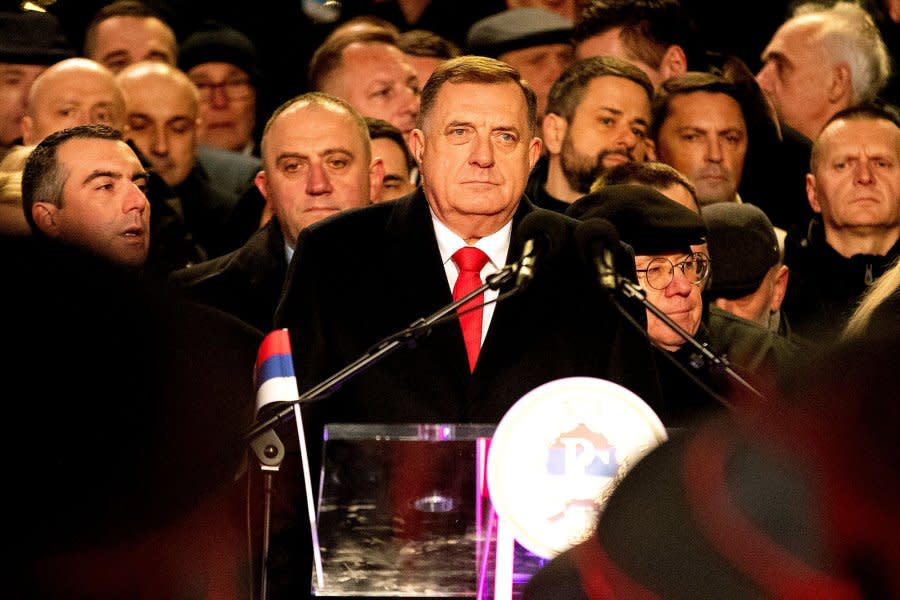U.S. sanctions Bosnian Serb officials over controversial 'Republika Srpska Day'

- Oops!Something went wrong.Please try again later.
March 14 (UPI) -- The United States has sanctioned three people in Republika Srpska behind a controversial holiday that the Biden administration said undermines the peace and stability of Bosnia and Herzegovina.
The Biden administration has repeatedly imposed sanctions against those it accuses of threatening the fragile stability of the Western Balkan nation, and on Wednesday blacklisted members of a committee responsible for organizing "Republika Srpska Day" on Jan. 9 in defiance of court decisions that found the celebrations unconstitutional.
Jan. 9, 1992, is when Bosnian Serbs declared their secession from Bosnia and Herzegovina that preceded the Bosnian war.
In 1995, the war was brought to an end by the signing of the Dayton Agreement, which created Bosnia and Herzegovina's two ethnoterritorial entities: the Bosnian Serb-majority Republika Srpska and the Croat-majority Federation of Bosnia and Herzegovina.
The Republika Srpska has celebrated Republika Srpska Day on Jan. 9, which is also when it celebrates its orthodox Patron Saint's Day, but the Constitutional Court of Bosnia and Herzegovina ruled in 2015 that the holiday is unconstitutional for privileging Bosnian Serbs over other ethnic groups.
The ruling states that by celebrating both holidays on Jan. 9, Republika Srpska has created a public atmosphere that prioritizes "the religious heritage, tradition and customs of only the Serb people," placing them in a privileged position.
Despite the ruling, U.S.-designated Republika Srpska President Milorad Dodik created a committee to organize this year's Republika Srpska Day celebrations, which ran from Jan. 8-10.
Branislav Okuka, 57, Jelena Pajic Bastinac, 41, and Srebrenka Golic, 65, were sanctioned by the U.S. Treasury for being members of that committee. The punitive measures block all property in their names and bar U.S. persons from doing business with them.
"The United States is deeply concerned about the continued attempts to undermine the Dayton Peace Accords and the Bosnia and Herzegovina Constitution, two critical institutions that have been instrumental to peace and stability in the region" Under Secretary of the Treasury for Terrorism and Financial Intelligence Brian Nelson said in a statement.
"We will continue to hold to account those who seek to sow division to achieve their own political aims at the expense of the people of Bosnia and Herzegovina."
This year's holiday was met with staunch criticism from Western nations, including the United States and the European Union as well as the Organization for Security and Co-operation in Europe.
On Jan. 9, the U.S. Embassy in Sarajevo warned that the United States "has acted to address anti-Dayton actions like this in the past and will not hesitate to do so again in the future."
Okuka, who is an adviser to Dodik, told Srpska Republika News Agency that he was "honored" to be blacklisted by the United States for being a part of organizing Republika Srpska Day festivities, which he said were "magnificent and spectacular."
"I promise that the next Jan. 9 will be even better and more massive," he said.

